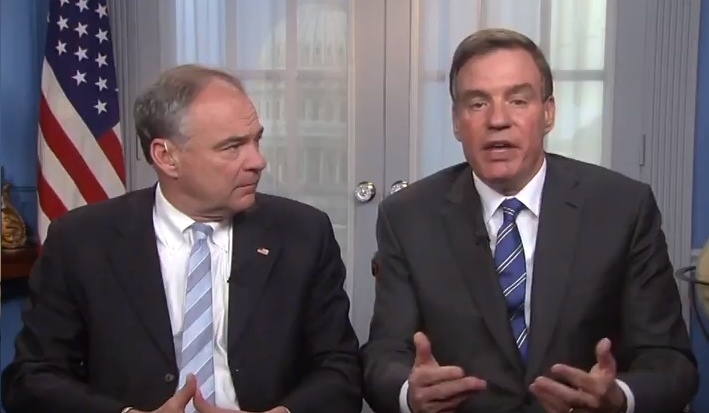Good work by Sen. Tim Kaine:
VIDEO: HELP COMMITTEE PASSES KAINE’S BILL TO RAISE THE TOBACCO AGE AS PART OF HEALTH CARE PACKAGE
Watch Kaine’s remarks here.
WASHINGTON, D.C. – Today, U.S. Senator Tim Kaine, a member of the Senate Health, Education, Labor, and Pensions (HELP) Committee, applauded Committee passage of legislation called the Lower Health Care Costs Act of 2019 that would bring down the price of prescription drugs. Additionally, provisions of four bills Kaine introduced were included in this comprehensive package: one to raise the tobacco age to 21, one to expand health care to rural areas through telehealth, one to increase access to lower-cost drugs, and another to improve the nation’s public health data systems. Kaine delivered remarks before the HELP Committee today on the legislation.
“I’ve heard from countless Virginians who have let me know how the high costs of health care are hurting their families and even their ability to put food on the table or a roof over their heads. I’m glad we could make progress to bring health care costs down for them by moving this bipartisan legislation forward. One important way we can address health care challenges is by curbing tobacco use – which is why I’m thrilled we successfully included our bill to raise the tobacco age to 21 in this package. This is a great step forward in our efforts to protect public health and tackle the youth vaping crisis,” said Kaine.
Kaine’s proposals were drawn from four bipartisan bills he introduced this year:
- The Tobacco-Free Youth Act, legislation Kaine introduced with Senate Majority Leader McConnell to raise the nationwide minimum age to buy all tobacco products, including e-cigarettes, from 18 to 21. The legislation is co-sponsored by Senators Pat Roberts (R-KS) and Mark R. Warner (D-VA).
- The Expanding Capacity for Health Outcomes Act of 2019 (ECHO 2019 Act), legislation to increase access to health care services in rural areas by expanding the use of technology-based collaborative learning and capacity building models.
- The Biologic Patent Transparency Act, which would require companies to publicly disclose the web of patents that protect their biologics, making it easier for competitors to evaluate and plan for the development of biosimilar versions of these drugs. It would also discourage late-filed patents and require the FDA to regularly publish information in its “Purple Book” on approved biologics, such as patents, exclusivity, and biosimilarity.
- The Saving Lives Through Better Data Act, a bipartisan bill to invest in public health data infrastructure and improve the nation’s public health data systems to ensure high quality, timely, and accurate information sharing in order to protect the public from health threats including viruses, prescription drug abuse, and other potentially preventable health problems.
The Lower Health Care Costs Act of 2019 will reduce the price of prescription drugs by increasing competition and lowering the costs of pharmaceutical products; tackle surprise medical bills; authorize new grant programs within HHS to improve maternal health care quality and reduce maternal mortality and severe maternal morbidity; and authorize funding for Community Health Centers. More than 300,000 Virginians rely on Community Health Center funding for health care services. This legislation is the result of 5 bipartisan hearings, testimony from medical professionals, and feedback from the public.
Click here for the text of the legislation, and here for a detailed summary of the legislation.





![[UPDATED 1/29/26] Audio: Sen. Tim Kaine Talks to Blue Virginia About His “Five-Point Plan” to Fight Trump’s Orban-Like Assault on US Democracy; Civil Disobedience a la MLK Jr.; Trump’s Bogus “Energy Emergency”; the Crucial Importance of the 2025 VA Elections; etc.](https://bluevirginia.us/wp-content/uploads/2025/02/kaineinterview2.jpg)
![Sen. Tim Kaine: Tommy Tuberville “brands [Ghazala Hashmi] an ‘enemy.’ Because she’s an immigrant? A Muslim? A woman? A poet?”](https://bluevirginia.us/wp-content/uploads/2026/01/tubervillekaine.jpg)











